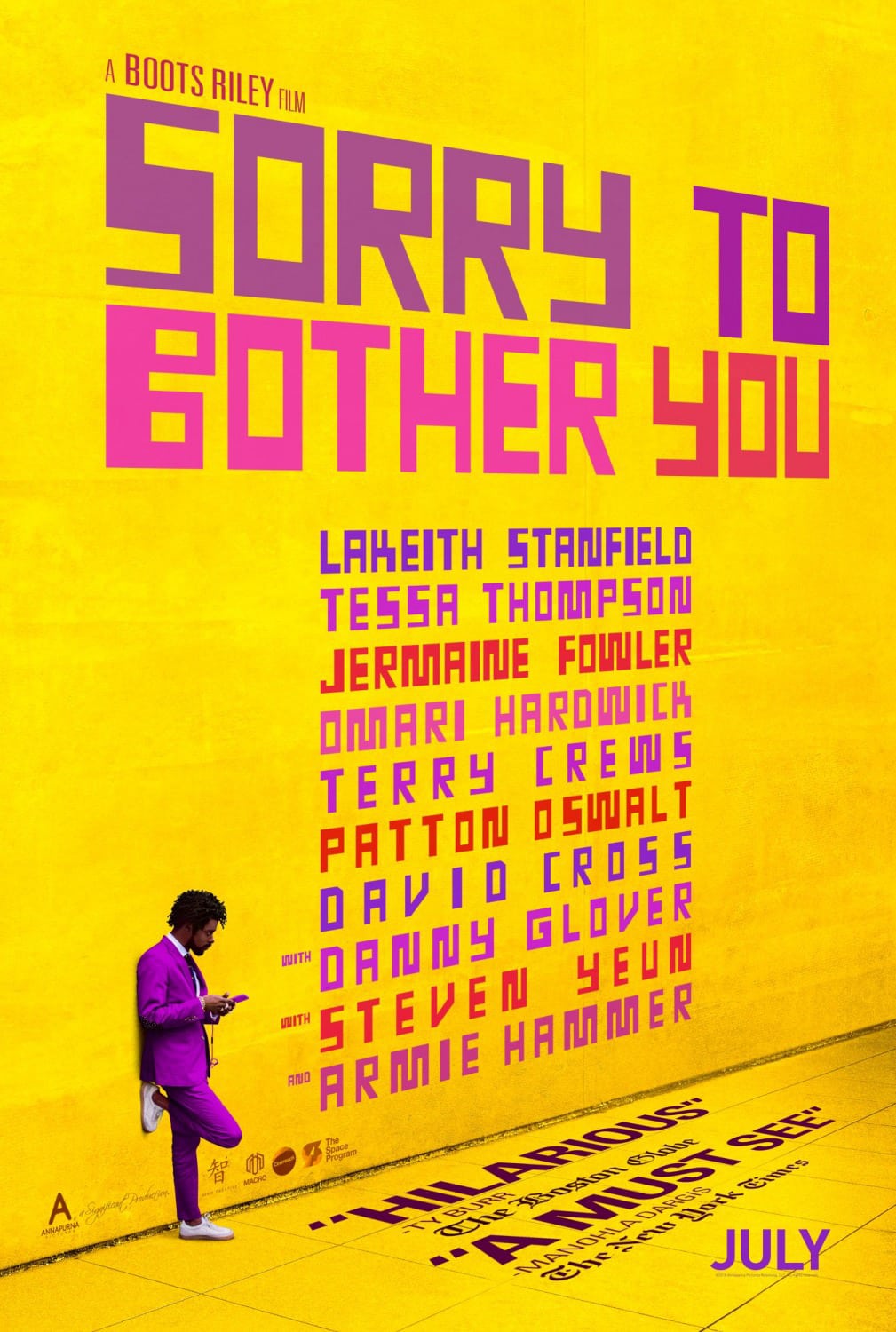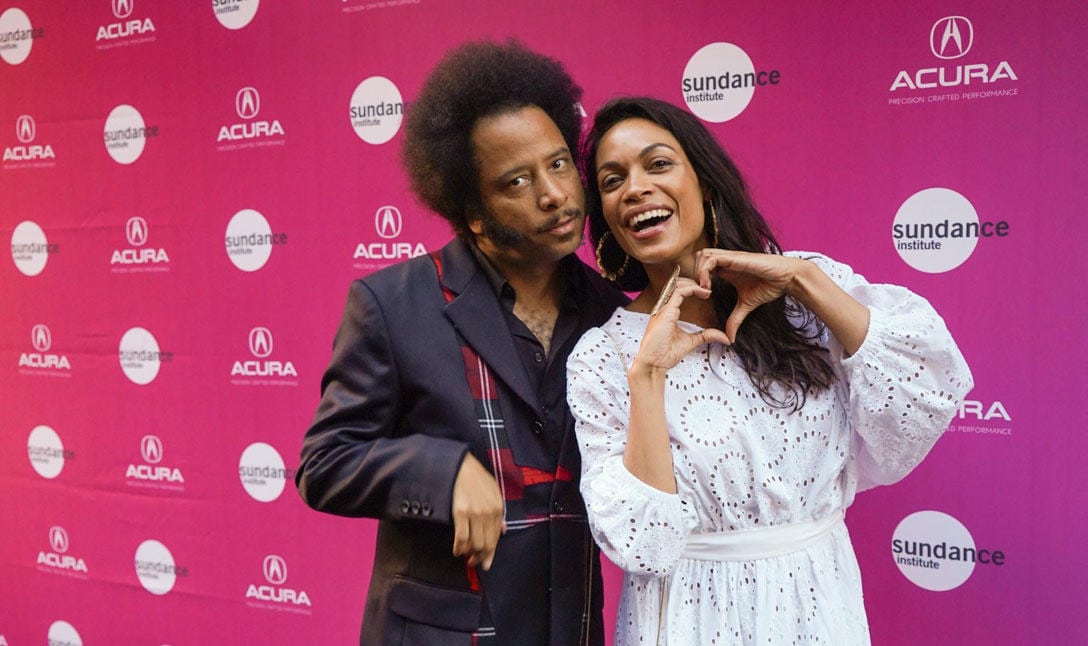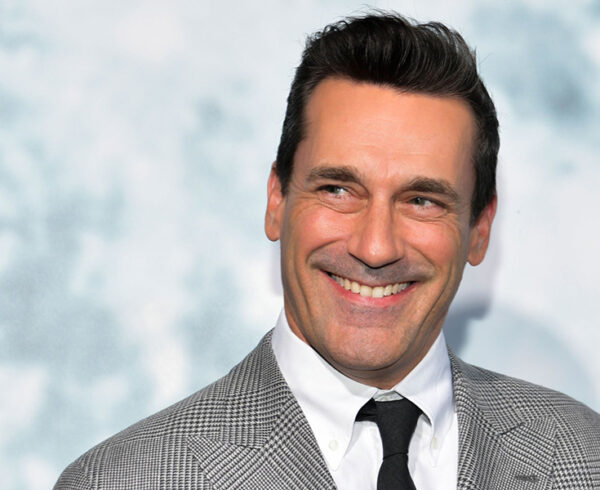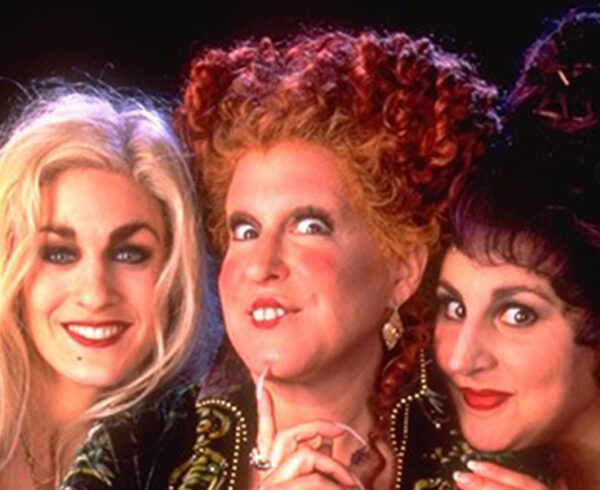“Sorry To Bother You” Looks Like This Year’s “Get Out”
 In the most welcome of ironies, the recent cinematic release Sorry to Bother You kicks in the door and takes names as brashly, wildly—and ultimately, as creatively—as anything you’re likely to see this summer, if not this year.
In the most welcome of ironies, the recent cinematic release Sorry to Bother You kicks in the door and takes names as brashly, wildly—and ultimately, as creatively—as anything you’re likely to see this summer, if not this year.
Admittedly, this Sundance darling with a massive agenda from rookie writer/director Boots Riley, one of the founding members of the revolutionary-minded 90’s rap group The Coup (which coincidentally released a 2012 album entitled Sorry to Bother You), sometimes bites off more than it can comfortably chew. But even at its worst, Sorry to Bother You serves as an emphatic announcement that the former musician Riley is ready to become a force in the world of movies as well.
Riley sets his raucous debut film in his native Oakland, but in an alternate present-day version in which a billion dollar corporation offers housing in exchange for labor, “modern-day slavery!” cry rioters throughout the city. At the center of the turmoil is Cassius Green (Lakeith Stanfield), a struggling young professional who drives a lemon that seems to run on smog and lives in the garage of his uncle’s (Terry Crews) apartment with his wildcard girlfriend Detroit (Tessa Thompson), an aspiring artist who doubles as a member of the Banksy-style “Left Eye” activist movement.
In desperate need of income, Cassius secures a telemarketing job at a bleary office, where he is advised by a seasoned colleague (Danny Glover) to speak on the phone using his “white voice,” i.e. an entitled timbre that makes you sound wealthy and worry-free. Cassius’ ensuing use of his “white voice” (which Stanfield lip syncs along with David Cross’ vocals) proves to be so successful that it lands him a fat promotion as a “power caller” in the building’s extravagant penthouse suite.
But it also places Cassius at odds with both Detroit and his former coworker friends, who are in the midst of organizing a union strike. And when a lavish party at the mansion of the corporation’s coke-snorting CEO bro Steve Lift (Armie Hammer) leads to Cassius unveiling a sinister conspiracy involving (strap in, folks) horse DNA, Cassius is faced with the question: what is the true price of capitalist success in America today?
If these plot points sound absolutely gonzo to you, well, just wait until you see them unfold. But miraculously, even as Riley’s script soars off the proverbial rails, you never get the sense that the first-time director has lost his grip on the proceedings. The fact that Riley is able to control even his most anarchic inklings is a true testament to his innate talent as both a screenwriter and director.
Riley’s provocative material is elevated even further by his electric cast. If in the past you only knew Lakeith Stanfield as “the lanky guy from Atlanta and Get Out, you’re about to know him by name. Imbuing his portrayal of Cassius with his signature subdued introspection, Stanfield delivers a star-turning performance. Thompson is likewise terrific, convincingly playing dual sides of an intricate coin, disapproving of Cassius’ money-hungry tendencies but utilizing his very same tricks: employing a British voice (Lily James) to sell her art at her gallery. And Hammer alone may be worth the price of admission, stealing his scenes with more gusto than his unhinged character parties.
Sorry to Bother You seems destined to draw comparisons to last year’s groundbreaking horror-comedy Get Out, a film that the former clearly admires but can’t quite match. Whereas Get Out doesn’t have so much as an ounce of fat on it, Sorry to Bother You is at times a victim of its own ambition; a few of the many thematic plates it tosses in the air come crashing to the ground. But the plates that remain afloat attack society with such incisive satire and scathing humor, it renders the comparison to Get Out a valid one.
Ultimately, both are excruciatingly timely films set in adjacent universes that feel terrifyingly similar to reality. And, as was the case with Get Out last year, Sorry to Bother You is exactly the kind of dart heading for a target labeled “society” that we so desperately need.












